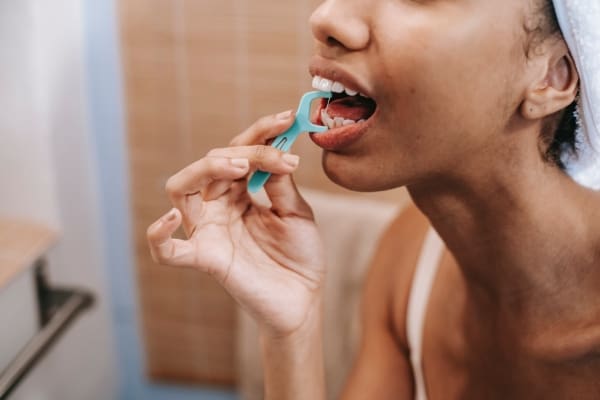
Dental health is an essential aspect of overall well-being, and it’s important to separate fact from fiction when it comes to oral hygiene. Unfortunately, there are many dental myths that can lead to detrimental consequences if believed. In this article, we will debunk the top 5 dental myths and provide factual information to help you make informed decisions about your dental health.
Myth #1: Sugar is the Main Cause of Cavities
One of the most common dental myths is that sugar is the main cause of cavities. While it is true that sugar plays a role in the formation of cavities, it is not the only factor.
Cavities are caused by a combination of factors, including bacteria in the mouth, frequent snacking, sipping sugary drinks, and poor oral hygiene. When we consume sugary foods and drinks, the bacteria in our mouth feed on the sugars and produce acid. This acid, along with other substances, forms plaque on our teeth, which can lead to cavities.
However, it’s important to note that not all sugars are created equal. Sugars that are naturally present in fruits and vegetables are less likely to cause cavities than added sugars found in candy, soda, and other processed foods. This is because natural sugars are typically accompanied by fiber, which can help neutralize the acid in the mouth.
To prevent cavities, it’s essential to practice good oral hygiene, including brushing twice a day, flossing daily, and visiting the dentist regularly. It’s also important to limit sugary foods and drinks and to choose healthy snacks like fruits, vegetables, and cheese.
In summary, while sugar does contribute to the formation of cavities, it is not the main cause. A combination of factors, including bacteria, poor oral hygiene, and frequent snacking, can lead to tooth decay. By practicing good oral hygiene and making healthy food choices, we can help prevent cavities and maintain healthy teeth and gums.
Myth #2: Flossing is Not Necessary
One of the most common dental myths is that flossing is not necessary. However, this couldn’t be further from the truth. Flossing is an essential part of maintaining good oral hygiene and preventing gum disease. While brushing can remove plaque and food particles from the surface of your teeth, it cannot reach the spaces between your teeth and gums where bacteria can accumulate.
In fact, flossing is even more critical than brushing when it comes to removing plaque and debris from hard-to-reach areas. According to Dr. Julie Boudreault at Milltown Dental, “Flossing is one of the most essential aspects of maintaining healthy dental hygiene.” Failing to floss can lead to gum disease, which can cause tooth loss and other serious health problems.
Another common misconception is that flossing is painful or difficult. However, with the right technique and tools, flossing can be quick and easy. You can use traditional floss, floss picks, or water flossers to clean between your teeth and gums. Your dentist or hygienist can show you the proper technique and recommend the best tools for your needs.
In conclusion, the myth that flossing is not necessary is just that – a myth. Flossing is an essential part of maintaining good oral hygiene and preventing gum disease. Make sure to floss at least once a day, and don’t hesitate to ask your dentist or hygienist for advice on the best flossing techniques and tools for your needs.
Myth #3: Teeth Whitening is Harmful to Teeth
One of the most common dental myths is that teeth whitening is harmful to teeth. While it is true that some teeth whitening methods can cause harm, it is not true for all methods.
Firstly, let’s talk about how teeth whitening works. Teeth whitening is the process of removing stains from teeth and making them appear whiter. The process involves using a bleaching agent, such as hydrogen peroxide or carbamide peroxide, to break down the staining molecules on the tooth surface. This process does not harm the enamel of the teeth.
However, overuse of teeth whitening products can cause harm to the teeth. Excessive use of teeth whitening products can cause the enamel to become thinner, making the teeth more sensitive to hot and cold temperatures. It can also cause the teeth to become translucent, which can make them appear gray or blue.
It is important to note that not all teeth whitening products are created equal. Professional teeth whitening treatments are safe and effective, as they are administered by a dentist who can monitor the process and ensure that the teeth are not being harmed.
In summary, teeth whitening is not harmful to teeth when done correctly and in moderation. It is important to use teeth whitening products as directed and to consult with a dentist before starting any whitening treatment.
Myth #4: Baby Teeth are Not Important
One of the most prevalent dental myths is that baby teeth are not important because they will eventually fall out. However, this is far from the truth. Baby teeth play a crucial role in a child’s oral health and development. Here are some reasons why:
- Baby teeth help children chew and speak properly. When a child loses a baby tooth prematurely, it can affect their ability to eat and speak correctly, leading to nutritional deficiencies and speech problems.
- Baby teeth act as placeholders for permanent teeth. If a baby tooth is lost too early, the surrounding teeth can shift into the empty space, causing crowding and misalignment of permanent teeth. This can lead to more extensive orthodontic treatment later on.
- Baby teeth can develop cavities, just like permanent teeth. If left untreated, cavities in baby teeth can cause pain, infection, and even tooth loss. Additionally, the bacteria that cause cavities in baby teeth can spread to permanent teeth, leading to more extensive dental problems.
Therefore, it is essential to take good care of baby teeth by brushing twice a day with a soft-bristled toothbrush and fluoride toothpaste. It is also recommended to take children to see a pediatric dentist by the age of one to establish good oral health habits early on and detect any potential dental problems.
In conclusion, baby teeth are just as important as permanent teeth, and neglecting their care can lead to significant dental problems down the road.
Myth #5: Visiting the Dentist Only When in Pain is Sufficient
One of the most common dental myths is that you only need to visit the dentist when you’re experiencing pain or discomfort. However, this is not true. Regular dental checkups are crucial for maintaining good oral health and preventing oral health issues.
When you visit the dentist, they can detect and treat dental problems before they become more serious and painful. For example, if you have a cavity, your dentist can fill it before it becomes a bigger problem that requires a root canal or even a tooth extraction.
Additionally, regular dental checkups can help prevent cavities from developing in the first place. Your dentist can provide you with tips and advice on how to properly care for your teeth and gums, such as brushing and flossing techniques, and recommend products that can help improve your oral health.
It’s important to note that some oral health issues, such as gum disease, may not cause pain or discomfort in the early stages. By the time you start experiencing symptoms, the condition may have progressed and become more difficult to treat. Regular dental checkups can help detect and treat gum disease before it becomes a bigger problem.
In summary, visiting the dentist only when you’re experiencing pain or discomfort is not sufficient for maintaining good oral health. Regular dental checkups are crucial for preventing oral health issues and detecting and treating them before they become more serious.
When it comes to your dental health, it is important to be informed and avoid falling prey to misinformation. To help ensure the best dental health possible, make sure to stay informed with accurate information from a reliable dentist. Remember, with these tips in mind, you can have peace of mind that your dental health isn’t at risk due to misconceptions or false information.



